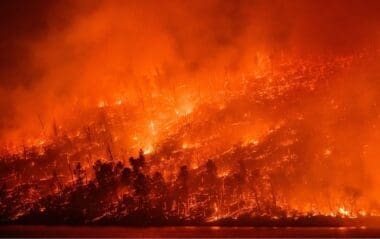The year 2024 has posed significant challenges for Earth’s climate system, marked by unprecedented heat levels, extreme weather incidents, and pressing calls from scientists to address the accelerating global warming crisis. According to the Copernicus Climate Change Service (C3S), this year is set to become the hottest year since the commencement of systematic record-keeping over a century ago, surpassing the temperature benchmarks of previous years. Notably, 2024 will be remembered as the first year when the global average temperature exceeded the crucial 1.5 degrees Celsius above pre-industrial levels, the target limit set under the Paris Agreement to prevent severe climate repercussions.
The early months of 2024 witnessed an extension of a 13-month heat streak, concluding in July with the subsidence of the natural El Niño climate pattern. During this time, an exceptionally warm summer shattered historic temperature records across the United States, affecting both coastal cities significantly. NOAA reported that the Atlantic hurricane season, ending officially on November 30th, was unusually active with 18 named storms, featuring Hurricane Helene which became the deadliest storm to hit the continental U.S. since Hurricane Katrina in 2005. “The impactful and deadly 2024 hurricane season started off intensely, then relaxed a bit before roaring back,” stated Matthew Rosencrans, NOAA’s lead hurricane forecaster.
Meanwhile, western Canada experienced an atypical number of lightning-induced wildfires, with Jasper’s tourist town being notably affected. These events have led to the second most severe wildfire season Canada has faced, only second to the previous year. As highlighted by wildfire expert Lori Daniels, some fires ignited back in 2022 and 2023 continue to burn into 2025, illustrating the persistent environmental damage facing the region.
In South America, the Amazon basin faced its most severe drought, shrinking major rivers to record lows and isolating communities reliant on boat travel. The disastrous drought conditions, coupled with illegal rainforest clearing for agriculture, contributed to catastrophic wildfire seasons in South American countries like Bolivia, Ecuador, and Argentina. “The forest used to be able to resist those fires,” commented Rachel Biderman from Conservation International. “Now, because of climate change and ongoing forest degradation, the forest has become so dry that it is more susceptible to fires.”
The Arctic region also showcased alarming changes, with NOAA noting the second warmest annual surface temperatures since 1900. Traditionally a carbon sink, the Arctic tundra is now releasing more carbon than it absorbs due to thawing permafrost, which increases greenhouse gas emissions. This shift is exacerbated by increased wildfire activity. Although this year avoided record-low sea ice, it showed significant reduction compared to past decades, signaling a drastically altered Arctic environment. Rick Spinrad from NOAA emphasized the need for reducing fossil fuel pollution to combat these changes effectively. He was echoed by Walt Meier, a senior research scientist, who noted persistent ice loss and unpredictable environmental shifts in the Arctic.
The global stage also saw political efforts to mitigate climate change, as demonstrated by the controversial agreement at the United Nations climate summit in Azerbaijan. Developed nations pledged $300 billion annually by 2035 to assist developing countries in transitioning from fossil fuels and preparing for future climate challenges. However, this agreement was met with criticism, being labeled as “chaotic, poorly managed,” and illusive. This sets a critical tone for next year’s climate summit in Brazil’s Amazon rainforest, where nations will deliberate on strategic climate actions for the upcoming decade.
The climate phenomena observed in 2024 underscore the urgent need for ambitious and decisive action to address climate change. While scientific advancements and political agreements offer pathways to mitigate some impacts, they emphasize the need for rapid and widespread implementation of strategies to reduce emissions and adapt to inevitable changes. The events of this year serve as a stark reminder of the significant global efforts required to curtail the ongoing climate crisis.
Source: Space












